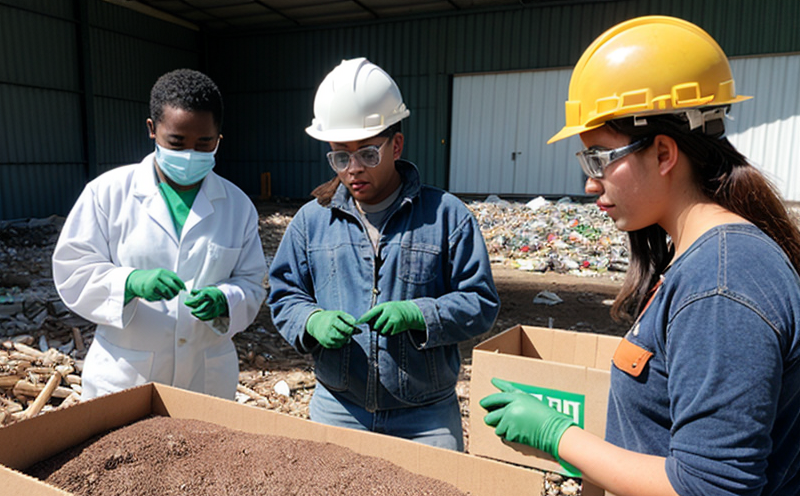EN 16785 Bio-based Product Sustainability Testing
The EN 16785 standard specifies the method for determining the bio-based carbon content of products, materials, and components. This test is crucial for manufacturers aiming to demonstrate that their products are composed partly or wholly of renewable resources. The standard ensures transparency in product labeling and helps consumers make informed choices regarding eco-friendly products.
The process involves analyzing the chemical composition of the sample to determine its bio-based carbon content using advanced analytical techniques such as Pyrolysis-Gas Chromatography-Mass Spectrometry (Py-GC/MS). The test measures the proportion of biomass-derived carbon in a product, which is expressed as a percentage. This quantification helps manufacturers comply with sustainability claims and regulatory requirements.
This service caters to various sectors including toys, consumer goods, and industrial products. For toy manufacturers specifically, this testing ensures that the materials used are sourced sustainably and can be labeled accurately according to market demands. The test is particularly relevant for products made from recycled or bio-based plastics.
The specimen preparation involves thorough cleaning of samples to remove any contamination before analysis. Once prepared, the sample undergoes a series of steps including extraction, purification, and characterization by Py-GC/MS. This process ensures accurate measurement of bio-based carbon content.
Typical test parameters include the type of material being analyzed (plastics, composites), the expected bio-based content percentage, and the accuracy required for labeling purposes. The service provides comprehensive reports detailing the bio-based carbon content alongside other relevant information such as traceability of raw materials and lifecycle assessment data.
Manufacturers who pass this test can use it to differentiate their products in a competitive market by promoting sustainability credentials. This is particularly important for toy manufacturers, where parents are increasingly prioritizing eco-friendly options for their children's safety and health.
Applied Standards
| Standard | Description |
|---|---|
| EN 16785:2019 | The European standard for determining the bio-based carbon content of products, materials, and components. |
This service strictly adheres to EN 16785:2019, ensuring that all tests are conducted in accordance with international best practices. Compliance with this standard is essential for manufacturers aiming to meet regulatory requirements and market expectations.
Benefits
- Evidence of sustainable sourcing practices
- Enhanced brand reputation through eco-friendly labeling
- Compliance with regulatory standards for bio-based products
- Informed decision-making in R&D processes
- Differentiation in the market by offering eco-friendly options
- Promotion of transparency and trust among consumers
- Support for circular economy initiatives
By undergoing this test, manufacturers gain a competitive edge through clear sustainability credentials. This is especially valuable in sectors like toys where consumer awareness of environmental issues is high.
Why Choose This Test
The EN 16785 Bio-based Product Sustainability Testing service offers several advantages over other testing methods. It provides precise quantification of the bio-based content in products, which is critical for accurate labeling and marketing claims.
- Precision: The use of advanced Py-GC/MS ensures high accuracy in measuring bio-based carbon content.
- Compliance: Ensures compliance with international standards and regulatory requirements.
- Transparency: Provides detailed reports that can be used to promote transparency about the sustainability of products.
- R&D Support: Helps R&D teams in understanding the environmental impact of materials, aiding in the development of more sustainable products.
For toy manufacturers, this test is particularly beneficial as it supports the growing demand for eco-friendly toys. Parents are increasingly seeking out products that are not only safe but also environmentally responsible, making accurate bio-based content claims essential for market success.





